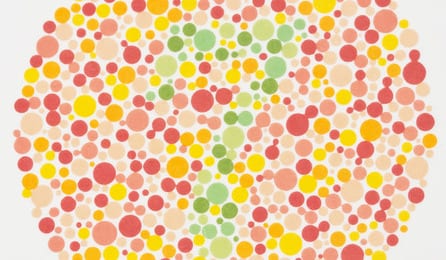WHAT IS COLOUR BLINDNESS?
When many people think of the condition known as “colour blindness,” they imagine someone seeing life like a black-and-white movie. While some people do experience monochromatic vision, it is actually extremely rare. More often, colour blindness manifests as a lower sensitivity to one particular colour– green or red in 99% cases of common colour blindness. Even still there are many different varieties, but the result is usually the same: an inability to differentiate colours in some circumstances (ie: poor lightning, mottled colour, etc).
SYMPTOMS
People with colour blindness experience a variety of symptoms, here are just a few:
- Inability to discern different shades of a particular colour as easily as people with a full spectrum
- Inability to discern one colour from another, while easily doing so for other colours
- Limited variety in colour, where other people see many shades of many colours (dozens vs. thousands, in some cases)
- All tones are black, white or gray– extremely rare
DIAGNOSIS
Tests for colour blindness commonly come in the form of symbols made from patterns of speckled, coloured dots– inability to see the symbols can indicate a deficiency. Another test is performed by arranging a series of items by colour, unmatched items can indicate a level of colour blindness. Due to the social consequences and importance of colour (ie: traffic lights, warning & safety labels, etc), it is vital that everyone is tested for colour blindness.
TREATMENT
Many colour vision problems are inherited and cannot be treated; this makes it doubly important for people to be aware of their eye health. If you have a family history of colour blindness or have recently developed difficulty identifying colours or shades of colours– consult with your optometrist. People with colour blindness generally live comfortable, full lives despite their condition. Some may not even be aware that they see colours differently than others.
Some forms of colour blindness can be acquired and treated, such as cataracts– which reduce colour vision and can be surgically removed.
If you suspect you or any of your family members are colour blind– or are just curious about the testing and consequences of colour blindness– contact The Vision Gallery today and make an appointment with our highly skilled eye health professionals!

